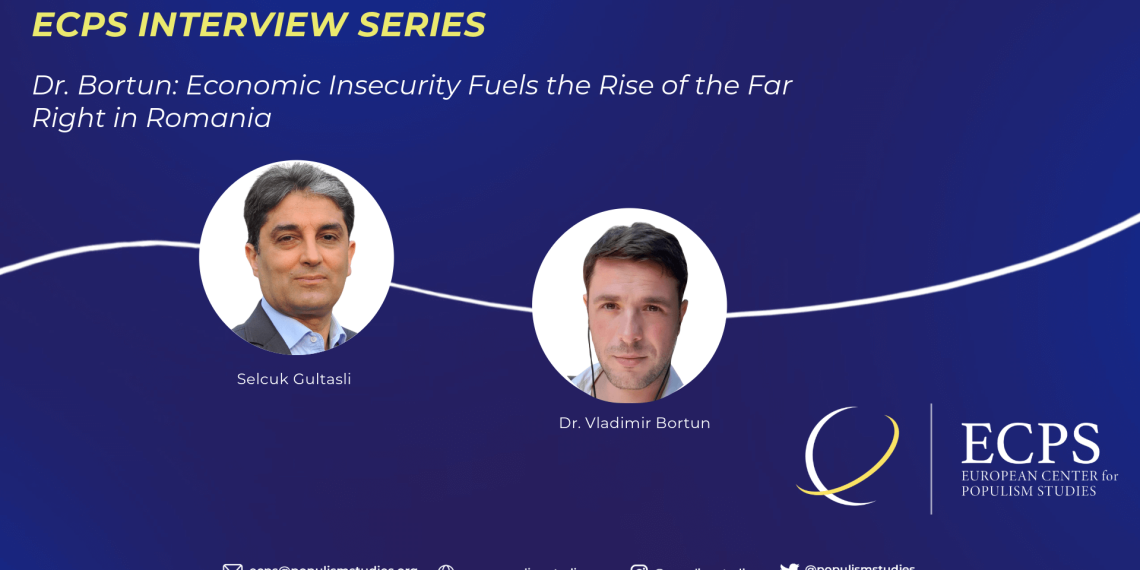In the wake of Romania’s high-turnout 2025 presidential election, Dr. Vladimir Bortun offers a powerful analysis of how deep-rooted economic insecurity—fueled by decades of neoliberal reform—has driven support for the far right. Despite a centrist victory, nationalist George Simion’s strong performance underscores a broader post-crisis populist consolidation. In this exclusive ECPS interview, Dr. Bortun explores the AUR’s appeal among the diaspora and rural poor, the ideological vacuum left by the mainstream left, and how Romania exemplifies a wider European shift from democratic to authoritarian neoliberalism. A must-read for anyone interested in the structural dynamics behind Europe’s populist realignment.
Interview by Selcuk Gultasli
Romania’s 2025 presidential election represented a pivotal moment for the country’s democratic trajectory and its place within the broader European political landscape. In a high-stakes runoff, centrist candidate and pro-European reformer Nicușor Dan secured a clear victory over George Simion, the leader of the far-right Alliance for the Union of Romanians (AUR). With the highest voter turnout in a quarter-century and the specter of a previously annulled election looming large, the vote was widely interpreted as a referendum on Romania’s political future—particularly on the tension between liberal democracy and the rising tide of far-right populism. Despite Simion’s defeat, his strong first-round performance and continued popularity signaled a deeper, more durable undercurrent of reactionary politics in Romania.
Against this backdrop, the European Center for Populism Studies (ECPS) spoke with Dr. Vladimir Bortun, a lecturer at the University of Oxford and an expert on European politics, transnational party networks, and left-populist movements. With unique insight into both the structural drivers and class dynamics underpinning political realignments in Romania and beyond, Dr. Bortun offers a compelling analysis of how economic insecurity—rooted in decades of neoliberal reforms, mass emigration, and systemic inequality—has created fertile ground for the rise of the far right.
In this wide-ranging interview, Dr. Bortun reflects on how the socioeconomic legacies of Romania’s post-1989 transition have failed to deliver on their liberal democratic promises, especially for large swaths of the population living in poverty or working precariously. He argues that this deep economic discontent, compounded by the collapse of credible left-wing alternatives and the ideological convergence of the center-left and center-right, has allowed far-right actors like Simion and AUR to present themselves as anti-establishment voices—even as their own policies serve entrenched economic elites.
Crucially, Dr. Bortun situates Romania within a broader European context, where authoritarian neoliberalism is increasingly replacing the post-Cold War liberal consensus. He draws instructive comparisons with Poland, France, and Southern Europe, exploring how the mainstreaming of far-right rhetoric and policy by centrist parties—particularly around immigration and national sovereignty—has reshaped the ideological field.
By examining the rise of AUR’s support among the Romanian diaspora and among marginalized rural voters, Dr. Bortun challenges simplistic narratives about populism and brings attention to the lived realities of class, exclusion, and political abandonment. As he makes clear, the battle over Romania’s future is not only political or cultural—it is fundamentally about economic power, ownership, and whose voices get to shape the nation’s path forward.


